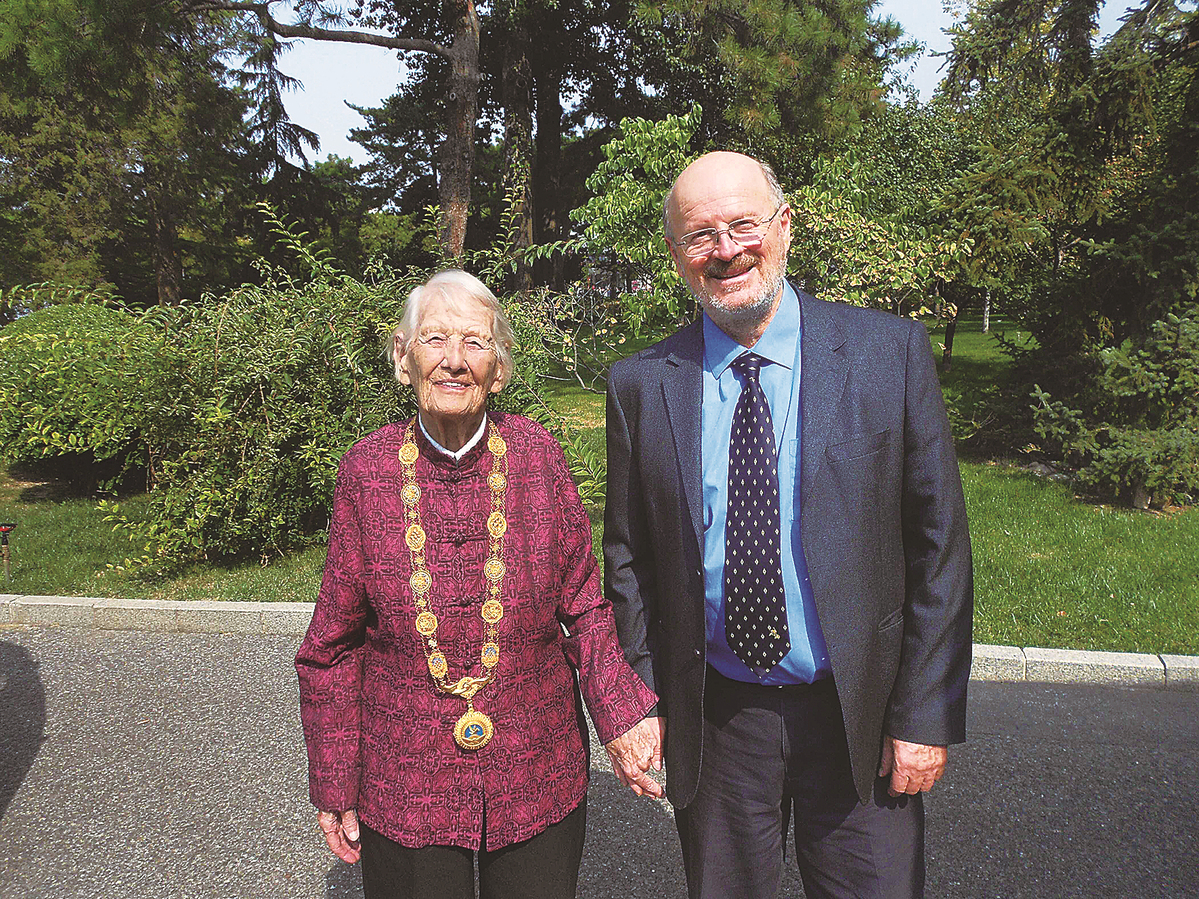New biography chronicles Isabel Crook's story
By FANG AIQING and HUANG ZHILING | CHINA DAILY | Updated: 2022-06-01 09:00

Author Tan Kai explores the anthropologist and educationist's work
Tibetan woman Yangzom, 94, who comes from a rural area of Sichuan province, remembers learning the nursery rhyme Row, Row, Row Your Boat in English more than 80 years ago.
She mastered the words when Canadian expatriate Isabel Crook carried out an anthropological field study of Tibetan households in Yangzom's home village of Bashinao, Aba Tibet and Qiang autonomous prefecture, Sichuan province, in 1939.
Details of Crook, who was born in 1915, visiting Tibetan and Qiang villages are recorded in Love China All My Life: Isabel Crook's Stories, a biography recently published by author Tan Kai.
The book includes numerous anecdotes about Crook-a kindhearted, determined figure who has devoted most of her life to ethnological studies of China, the nation's rural development and teaching English.
In 2019, Crook received the Friendship Medal, China's top honor for foreigners, for her contribution to the nation's foreign language education.
In addition to Crook's achievements, the book takes a close look at her hard work and persistence.
More important, it provides the backdrop for readers to understand why she and her husband chose to stay in China and strived to improve conditions for its people.
During her time in Bashinao, Crook volunteered to teach English at a local primary school that had only eight students and one teacher. Lacking textbooks, paper and pens, she started by using simple words of greeting.
She taught by using games, and also let the pupils make up small plays to practice their spoken English, which not only attracted audiences but also more children to attend the school.
Crook also learned skills from the villagers, but when she saw women spinning wool into yarn by hand, she decided to return to Chengdu, capital of Sichuan province, to buy them a wooden spinning wheel, which they had never seen or heard of before.
It took Crook at least seven days to travel to Bashinao from her base in Chengdu. Most of the time, she either walked or rode a horse. The route was full of hardships and danger. At one point, Crook and her companions had to traverse a cliff face for several kilometers as the Minjiang River flowed tempestuously below.
They also relied on a zipline to cross the river. In one photograph in the book, Crook is captured clinging to the line, laughing with great excitement as she carries the spinning wheel.
Yangzom's father Sonam Rinchen guided Crook to the village, where she lived with the family.
Sonam Rinchen used to act as guide for renowned scholars from home and abroad, including Li Anzhai (1900-85) and Zhuang Xueben (1909-84), along with David Crockett Graham (1884-1962) and Thomas Torrance (1871-1959), who came from the United States and the United Kingdom respectively.
When Crook arrived in Bashinao, Yangzom's aunt held a welcoming party, which was celebrated with plenty of highland barley wine. Villagers sang and performed Guozhuang-singing and dancing in a circle. Crook enthusiastically joined in, unwittingly stepping on someone's foot.
When she was 104, Crook recounted this unforgettable scene to younger members of Yangzom's family.
























